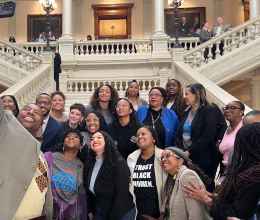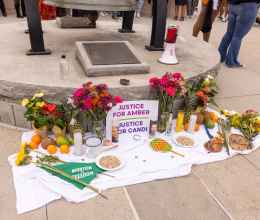The Georgia Court of Appeals agreed with the ACLU of Georgia’s position that commercial landlords cannot file ‘nuisance’ lawsuits against abortion clinics simply because anti-abortion protestors have created a nuisance on the property.
Abortion clinics in Georgia and elsewhere in the United States face the threat of harassment, violence, and other criminal activity from certain anti-abortion extremists. To hold abortion clinics liable for the consequences of their opponents’ actions would be cruel and unjust. It would also violate the United States Constitution.
The practical reality of subjecting abortion clinics to nuisance verdicts like the one in this case is that abortion clinics will close and patients will be denied abortion care. Abortion is a safe and common medical procedure that is important to women’s health, well-being, and self-determination.
For patients who are denied the abortion care they seek, the consequences can be devastating. Their emotional and physical health will be at risk, their financial stability suffers, their family well-being is worse off, and other aspects of their life deteriorate. These consequences, well documented in medical and social science literature, are even worse for women of color and indigent women, groups who are already suffering from a devastating maternal mortality crisis in Georgia.
In his decision, Judge Hodges wrote the following.
“McBrayer’s practice is likely to displease some in the community and attract protestors wherever it is located. If we were to hold that a legally-operated abortion clinic cannot even operate in a commercial office park zoned for medical practices without constituting a nuisance we would be, in effect, holding that such clinics cannot properly operate anywhere. As amicus curie correctly point out, such a holding could be used to expose a broad array of legal businesses and institutions to nuisance liability due to the fact that some find them controversial and some will protest their very existence.
“Both legal protestors and criminals have caused disruption around a multitude of business and institutions, such as gun shops, fur retailers, Chick-Fil-A restaurants, police departments, synagogues, statehouses, Black churches, adult entertainment establishments, and mosques, to name a few. Under the common law, property ownership in Georgia does not guarantee only ideologically-aligned neighbors whose business practices will cause no upset or attract no controversy, and we will not hold otherwise.”

